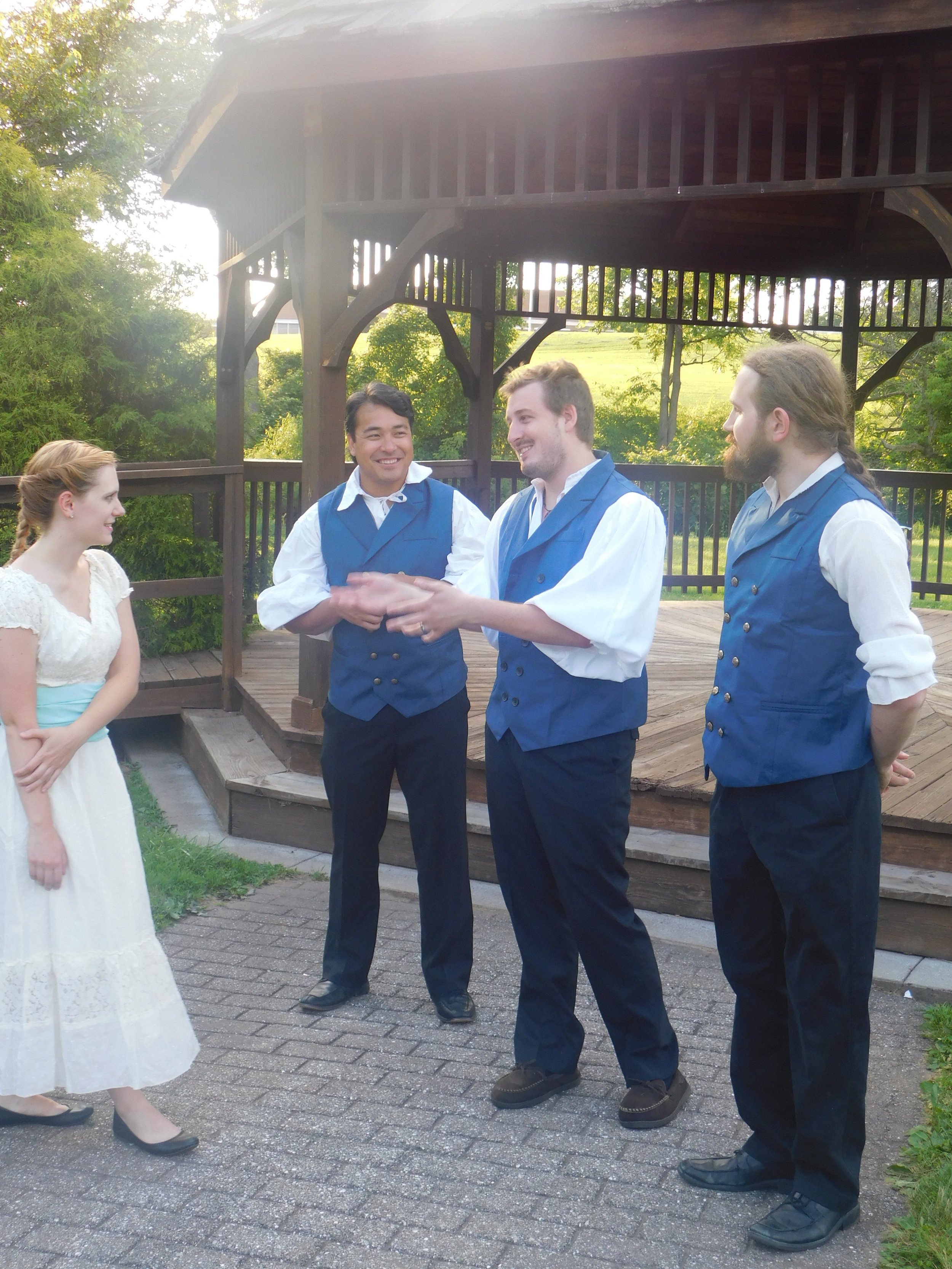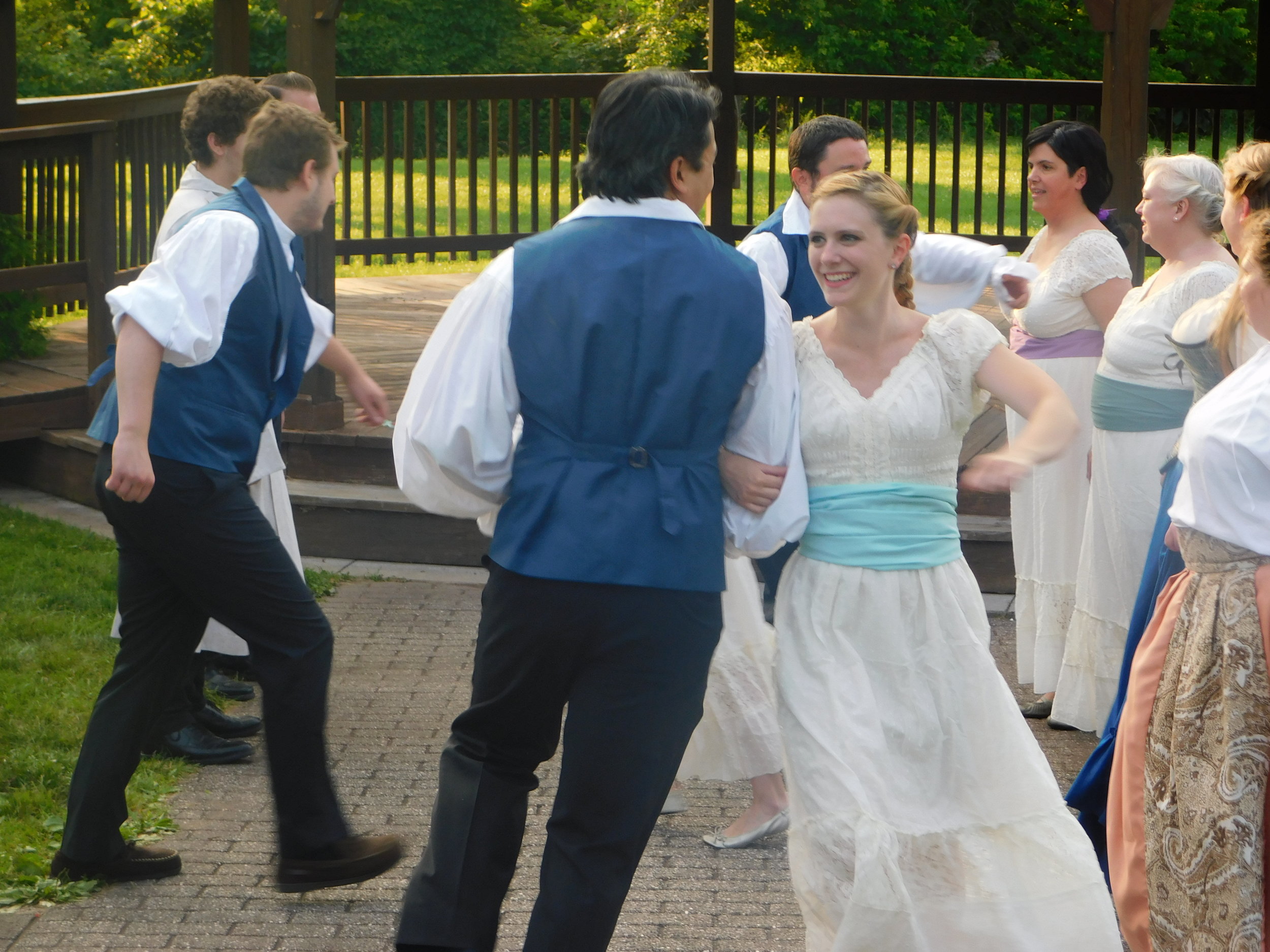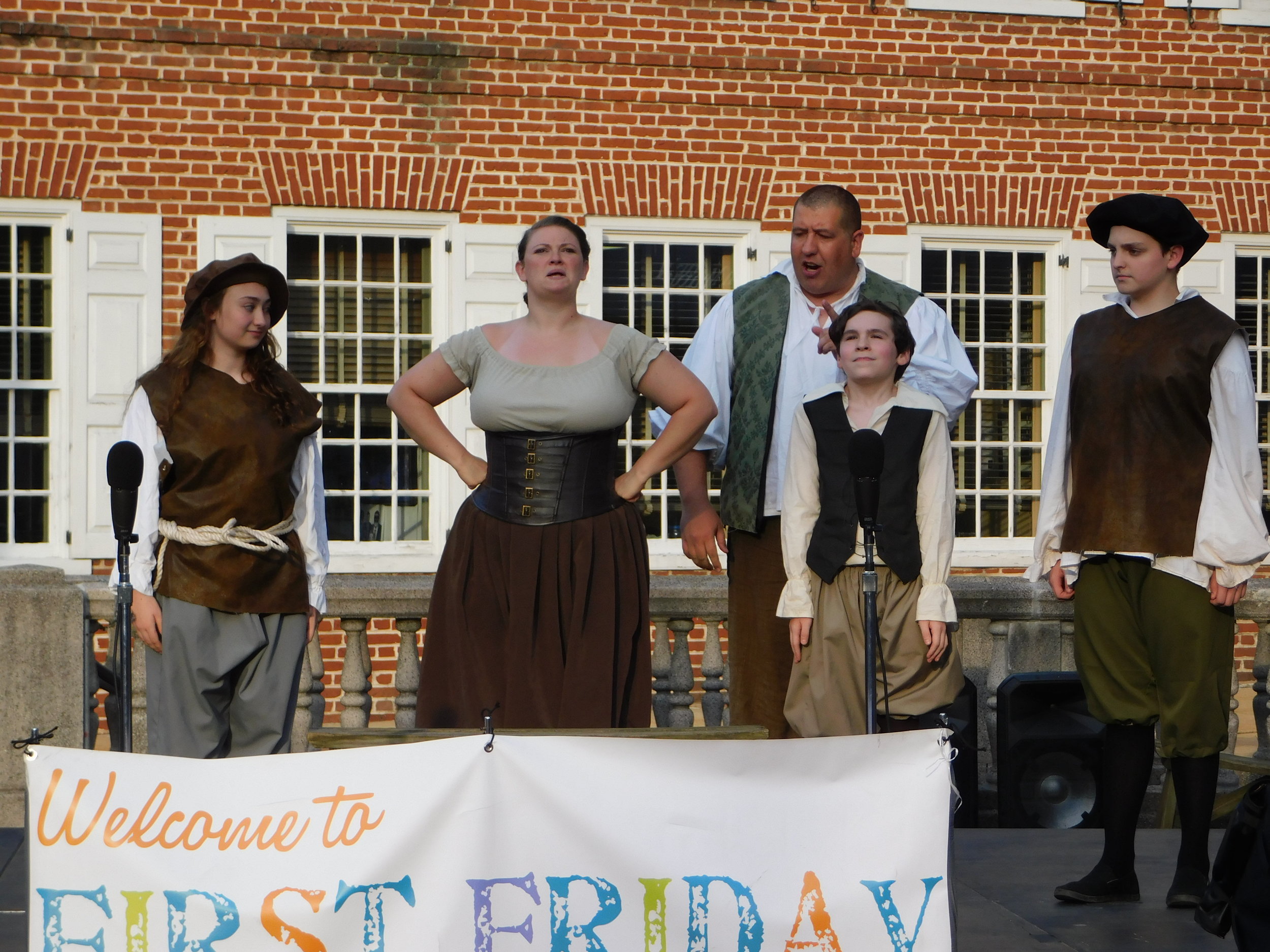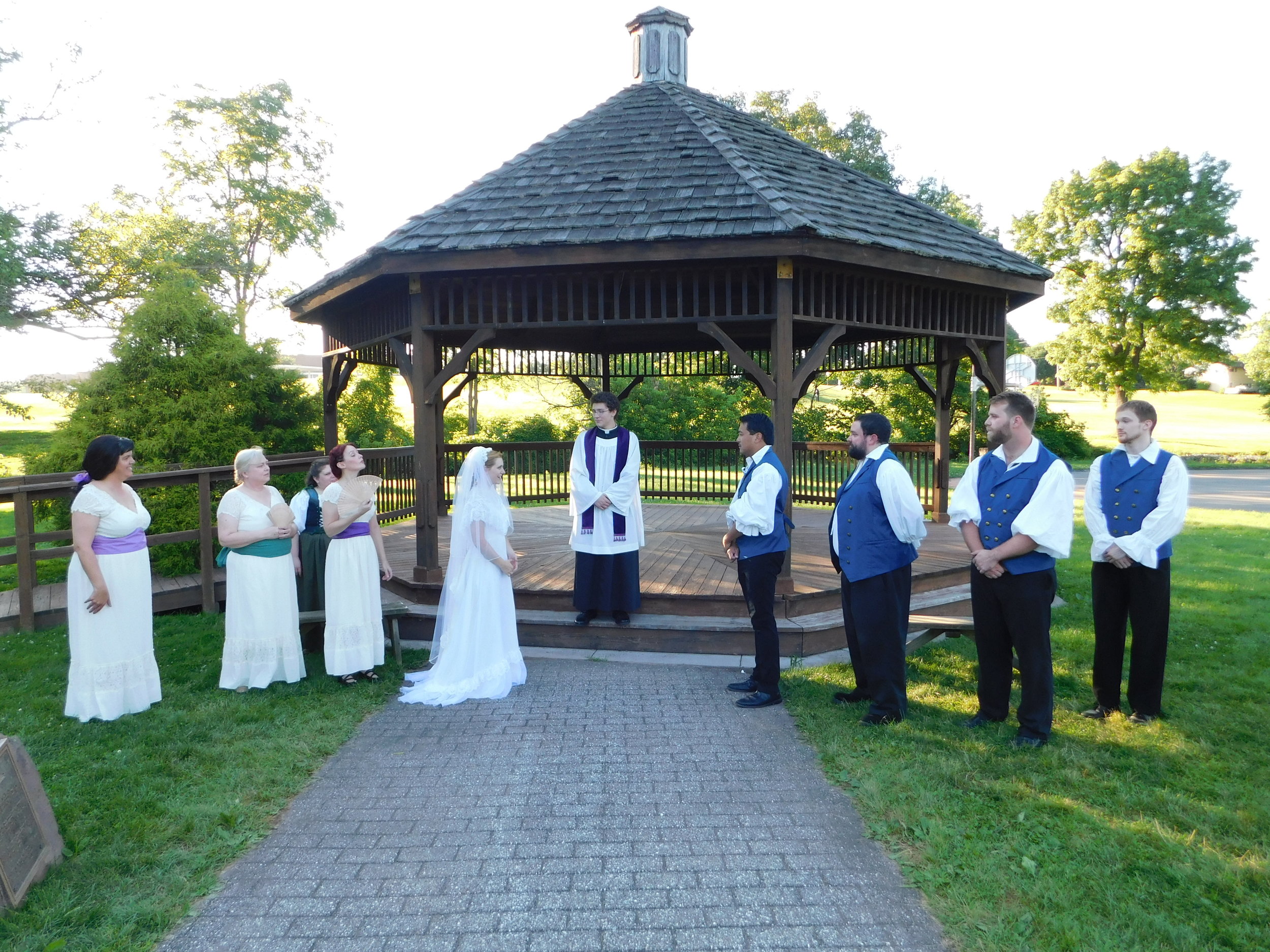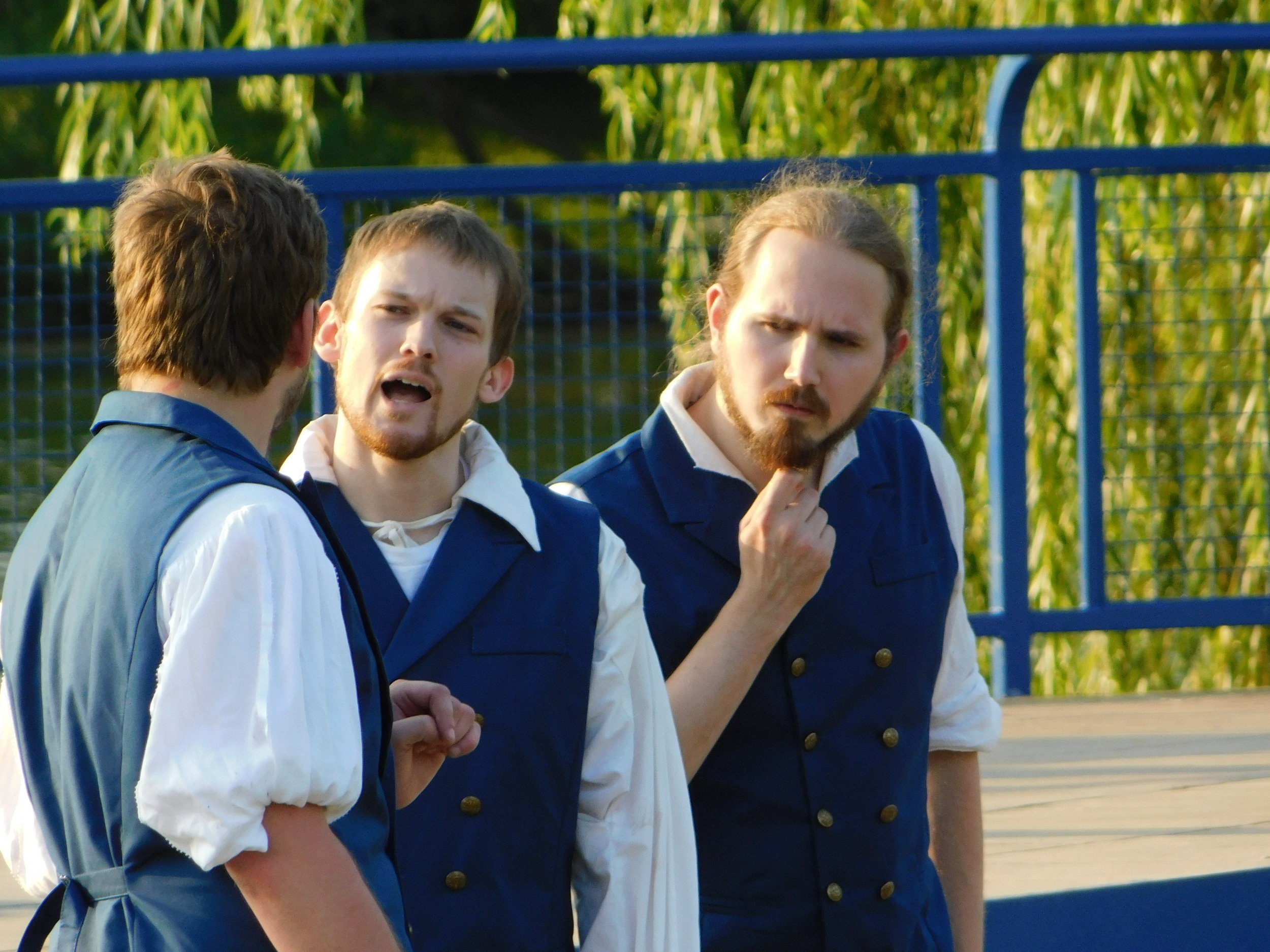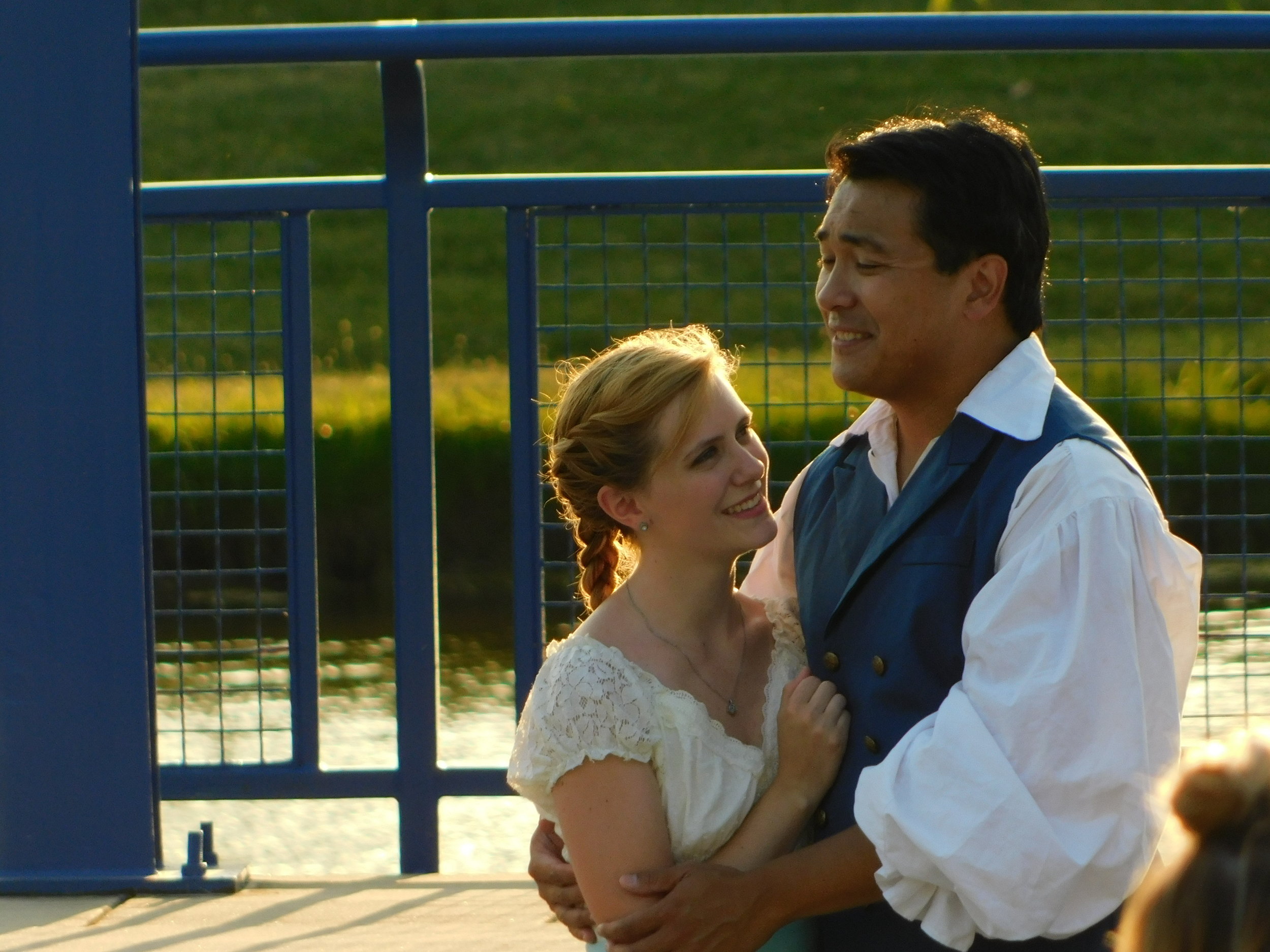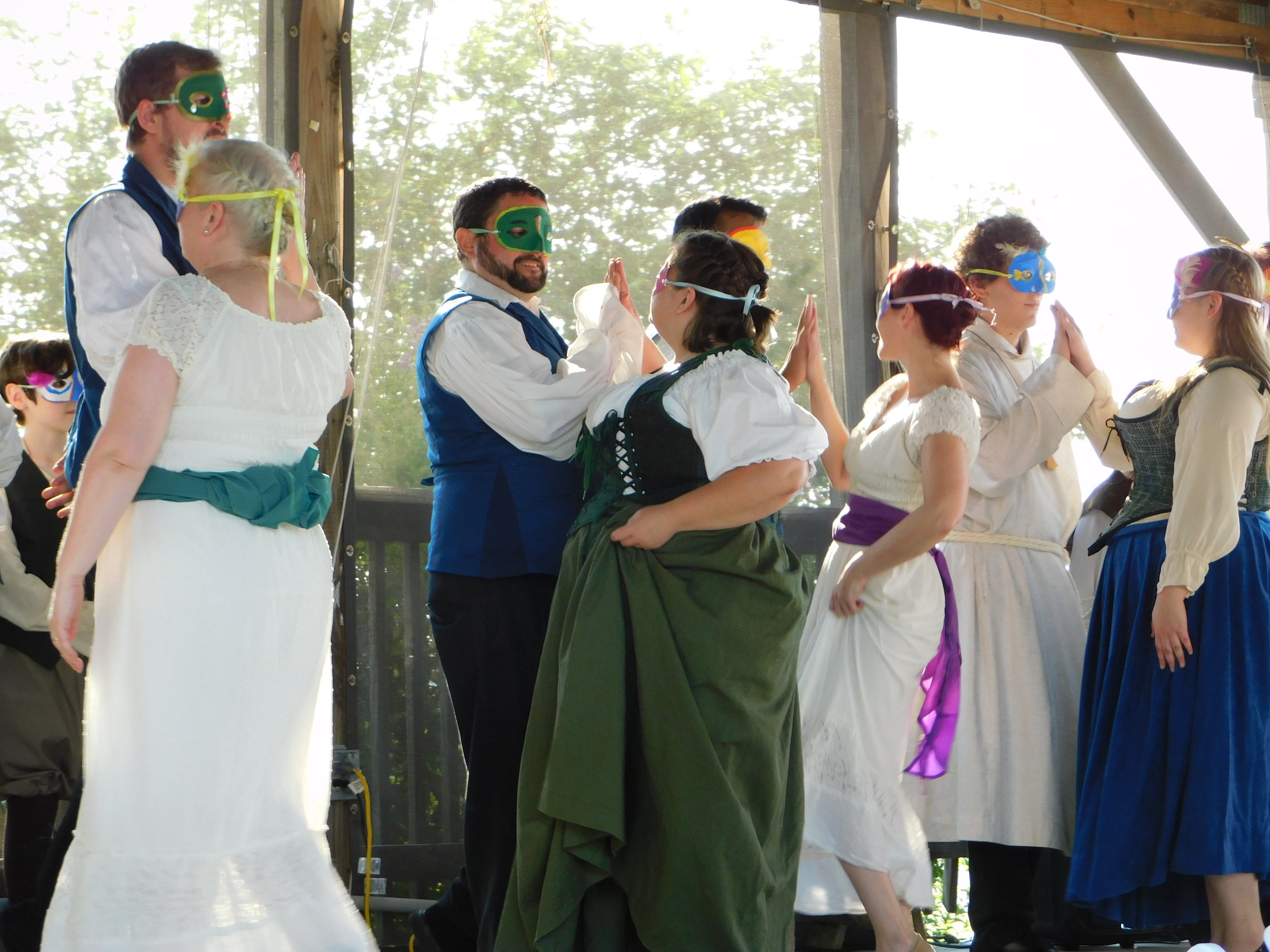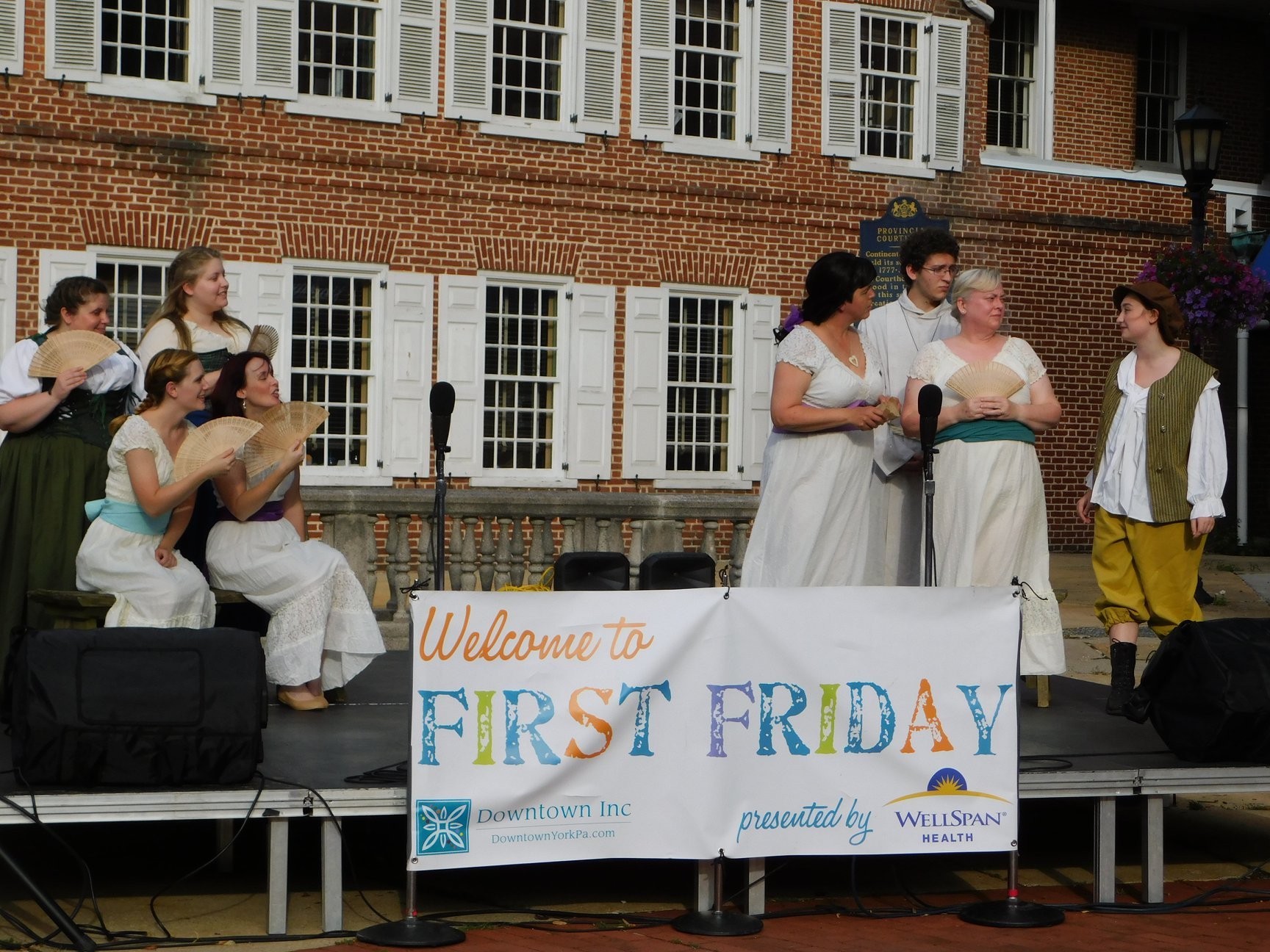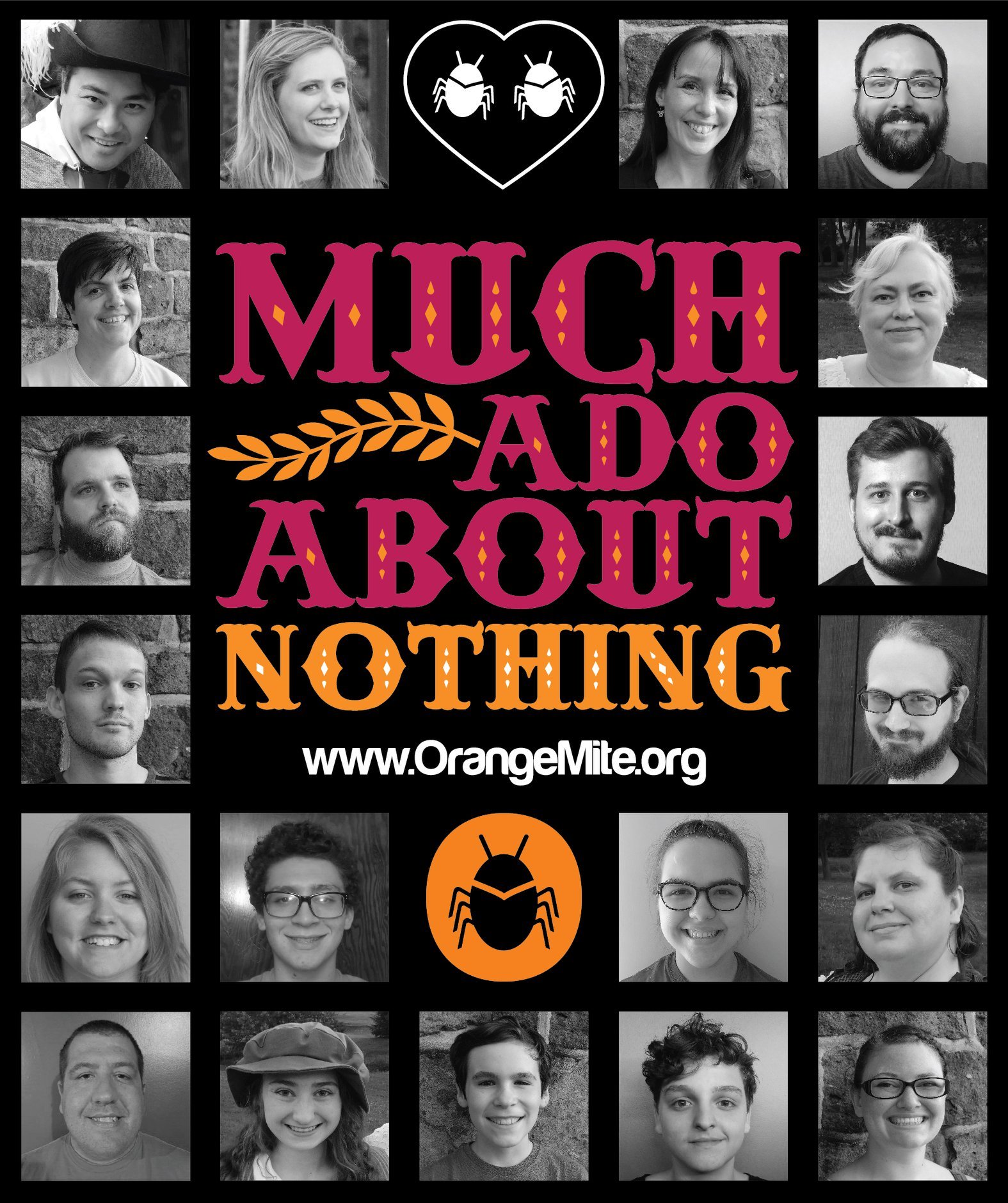MUCH ADO ABOUT NOTHING
July 2018, Directed by Quinton Laughman
DIRECTOR'S NOTES
Much Ado About Nothing:
Love, Lies, and Longing
Much Ado About Nothing is one of Shakespeare’s most popular comedies. Shakespeare wrote this play in the middle of his career, and it uses many of his well-known plot themes: mistaken identity, deception, infidelity, gender roles, and faked deaths. The play follows the story of Hero and Claudio’s young, passionate love for each other, though Beatrice and Benedick’s war of wits and older, more caustic romance often captures the audience’s attention. Taken literally, the title of this play implies that a lot of time and effort (much ado) is put into something insignificant (nothing). This is illustrated through the unfounded claims that Benedick and Beatrice love each other or in the accusation of Hero’s infidelity.
This show is carrying on the traveling tradition of English Renaissance theatre, though in a different manner. During the Elizabethan era, cities- in particular London- were not great places to be in during the summer. The heat caused cities to become places of greater disease and filth, thus many acting troupes took their shows “on tour” in the countryside. This meant using whatever places were available in the towns they visited.
I was a little apprehensive about having my first experience directing to be a traveling show. Because each venue is different, the blocking of characters and the use of set pieces is difficult and ever-changing. The unpredictability of outdoor locations when dealing with weather and noise compound the worries I faced. As you will see, this cast has risen to the challenge and excelled beautifully, belaying all my fears.
“There is a kind of merry war betwixt Signior Benedick and her: they never meet but there’s a skirmish of wit between them.”
The title could also be understood as Much Ado About Noting. In Elizabethan dialect, “nothing” was pronounced much like “noting,” thus audience members could ascribe several meanings to the word: Nothing as in its present parlance meaning zero, not anything. Noting as in overhearing, observing, especially in the form of gossip.
Also in Shakespeare’s time, “thing” and “nothing” were slang words in reference to reproductive organs much as they can be used today. Thus the title becomes Much Ado About Women. Shakespeare’s love of wordplay is also evident through the character of Dogberry. Dogberry’s constant use of malapropisms, the use of an incorrect word in place of a word with a similar sound, in his dialogue makes his scenes the comic relief of the show.
Performances: Summer 2018
Our cast performed four times at four different locations:
July 6th - Continental Square, First Friday York - 6:30pm
July 7th - Dover Community Park - 7:00pm
July 13th - Cousler Park - 7:00pm
July 14th - Brown's Orchard - 6:30pm
Our travels hope to bring Shakespeare to more people. People that might not normally be interested in one of the Bard’s plays or that still laments his works since high school. We hope that through our free performances new people can find Shakespeare more accessible and enjoyable.



